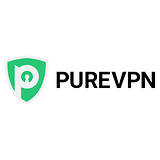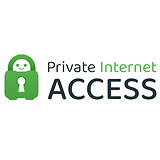
With more and more people concerned about their online privacy, VPN services are becoming increasingly more popular. With so many options that are available on the market, how do you choose the best company out of the lot? Check out how you can find the best option based on your needs in the guide below.
| Editor’s Choice | |||||||||
 |
 |
 |
 |
 |
 |
 |
 |
 |
|
| Name | CyberGhost* | NordVPN* | PureVPN | VyprVpn | ExpressVPN | Private Internet Access | SurfShark | Tunnelbear | Ivacy* |
|---|---|---|---|---|---|---|---|---|---|
| NextPit Tested | Go to review | Go to review |
Not yet rated |
Not yet rated |
Not yet rated |
Not yet rated |
Not yet rated |
Not yet rated |
Not yet rated |
| Subscription options (months) | 1, 6, 24 | 1, 12, 24 | 1, 12, 24 | 2, 18, 36 | 1, 6, 12 | 1, 12, 36 | 1, 6, 24 | 1, 12, 36 | 1, 12, 24 |
| Is there a trial period? | Yes (1 to 7 days) | No (30 days right of withdrawal) | No (31 days right of withdrawal) | No (30 days right of withdrawal) | No (30 days right of withdrawal) | 7 Days (30 days right of withdrawal | 7 Days (30 days right of withdrawal) | 500 MB | No (30 days right of withdrawal) |
| Price (monthly) | $2.25 to $12.99 | $3.49 to $11.95 | $2.91 to $10.95 | $6.47 to $1.81 | $8.32 to $12.95 | $2.03 to $9.95 | $2.49 to $12.95 | $3.33 and $9.99 | $2.45 to $9.95 |
| Headquarters | Romania | Panama | Hong Kong | Switzerland | The British Virgin Islands | USA | The British Virgin Islands | Canada | Singapore |
| Number of countries | 91 | 60 | 78 | 70 | 94 | 78 | 65 | 46 | 52 |
| Number of servers | 7.300 | 5.155 | 6.500 | 700 | 160 | “Unlimited” | 3.200 | 3.000 | 3.500 |
| Compatible platforms with its app | – Android, iOS – Windows, macOS, Linux – Android TV, FireTV |
– Android, iOS – Windows, macOS, Linux – Android TV, FireTV |
– Android, iOS – Windows, macOS, Linux – Android TV, FireTV |
– Android, iOS – Windows, macOS – Android TV |
– Android, iOS – Windows, macOS, Linux |
– Android, iOS – Windows, macOS, Linux |
– Android, iOS – Windows, macOS, Linux – FireTV |
– Android, iOS – Windows, macOS |
– Android, iOS – Windows, macOS, Linux – Android TV, FireTV |
| Kill Switch | Yes | Yes | Yes | Yes | Yes | Yes | Yes | Yes | Yes |
| Split-Tunneling | Yes | Yes | Yes | Yes | Yes | Yes | Yes | Yes | Yes |
| Browser extension | Chrome, Firefox | Chrome, Firefox | Chrome, Firefox | Chrome | Chrome, Firefox | Chrome, Firefox, Opera | Chrome, Firefox | Chrome, Firefox | Chrome, Firefox |
| Device limit | 7 | 6 | 10 | 5 | 5 | 10 | “Unlimited” | 5 | 5 to 10 |
| Protocols | OpenVPN, IKEv2, WireGuard | OpenVPN, IKEv2, WireGuard | L2TP, OpenVPN, IKEv2 | L2TP, OpenVPN, IKEv2, WireGuard | L2TP, OpenVPN, IKEv2 | OpenVPN, WireGuard, IKEv2 | OpenVPN, IKEv2, WireGuard | OpenVPN, IKEv2 | L2TP, OpenVPN, IKEv2 |
| Technical Support | English, German, French, Spanish, Romanian | English, German, French, Spanish, Italian, Japanese, Korean | English, German, French, Romanian | English, German, French, Spanish, Chinese | English (other languages available through machine translation) | English | English | English | English |
| Terms of service | No external links | ToS Privacy |
No external links | ToS Privacy |
ToS Privacy |
ToS Privacy |
ToS Privacy |
ToS Privacy |
No external links |
| Security Audit | No | Jun/2021 (app, VerSprite) | Out/2020 (no-log, KPMG) | Nov/2018 (no-log, Leviathan) | Jun/2019 (General, PDF, PwC) Jun/2021 (Lightway, PDF, Cure53) |
No | Abr/2021 (Servers, Cure53) Nov/2018 (Extentions, Cure53) |
Out/2020 (Software, Cure53) | No |
| How do I subscribe? | See Options | See Options | See Options | See Options | See Options | See Options | See Options | See Options | See Options |
| Name | CyberGhost | NordVPN | PureVPN | VyprVpn | ExpressVPN | Private Internet Access | SurfShark | Tunnelbear | Ivacy |
VPN basics
In general terms, a VPN is a system that redirects data from one network (usually the open Internet, but it can also be an internal company network) to another, and is managed by the VPN provider.
The transmission of data by a VPN is usually encrypted as it protects requests, files and pages accessed not only from third parties but even from the access provider itself. A common example would be the telecommunications company that offers Internet connectivity. This feature is useful in selected situations, such as when you are connected to Wi-Fi networks that do not require a password, in which the data between the device and router can be intercepted by malicious parties.
VPNs can also be used to bypass censorship systems of governments, totalitarian or not, or even geo-restricted resources, such as those applied by content providers in the form of streaming services. At this point, it is worth remembering that most video streaming companies prohibit the use of such resources to circumvent geographical limitations, and are constantly blocking addresses used for this purpose.
Important points to consider when subscribing to a VPN
Pointing out a particular VPN service is not a simple task as it is virtually impossible to make a universal suggestion for all types of users. Thus, we have highlighted some points for you to reflect on when subscribing to a plan:
Company Headquarters
It may seem strange, but the location of the company may be important depending on the importance given to the privacy of your data, and the use of the service.
Some companies make it a point to highlight that they are not headquartered in – and therefore remain out of the jurisdiction of one of the countries of the so-called five eyes/nine eyes/14 eyes, alliances of countries for the cooperation of their intelligence services.
- Five Eyes: Australia, Canada, the United States, New Zealand, and the United Kingdom.
- Nine Eyes: Five Eyes + Denmark, France, Norway, and the Netherlands.
- Fourteen Eyes: Nine Eyes + Germany, Belgium, Spain, Italy, and Sweden.
The reason would be carrying the risk that in one of these countries, the government may have the power to demand the sharing of data stored by the service, and this data may be shared with one of the other countries of the alliance(s). And this has already created controversy even with companies that advertised on how they do not keep usage records (logs) of their customers.
Of course, if your goal when signing up for a VPN service is just to watch BBC’s British programming, or Argentinean soccer championship matches, there’s not much to worry about.
Kill switch
Many people use VPNs to bypass protocol control systems – *ahem* BitTorrent *ahem* – and can face fines and lawsuits if unauthorized use of the connection is detected. In this case, some VPN services offer a disconnect feature, also known as kill switch, which does not release the connection operation after being interrupted and in some cases, even closes the open pages.

Split tunneling
Because VPN traffic passes through an intermediary server which is often located in another country, connection performance is naturally lower than without the VPN. This is especially noticeable in use cases that require low response times, such as games.
Split tunneling is a feature that allows you to separate internet traffic so that some apps and services do not use the VPN, potentially improving throughput and latency, or in a hypothetical situation, comparing the catalogs of a streaming service using two different browsers.
Applications and device limit
Smartphones, laptops, smart TVs, tablets…before subscribing to a VPN, it is worth checking out just which services offer apps for your devices. Major VPN companies usually have apps for Android, iOS/iPadOS, Windows and macOS, and extensions for desktop browsers, some even offer apps for smart TVs.
The availability of such apps helps simplify the connection setup process. On the other hand, more advanced users may consider setting up VPN on compatible routers using the OpenVPN protocol. This option can be used, for example, to use the VPN even on game consoles (to circumvent catalog restrictions or even find different prices).
Already the device limit can be important if the VPN is shared with several friends devices in the home. The number takes into account how many smartphones, laptops, tablets, and other devices simultaneously use the account, so it is highly recommended to have a good grasp on just which devices need to use the VPN at the same time.
Bottom line: Each situation is unique
Subscribing to a VPN is not an easy decision as different priorities tend to completely change the final decision on which service do I subscribe to. Do I just want to protect my mobile access over public networks? Am I’m traveling to a country with a notorious history of surveillance and censorship? Do I need to get around geo-restrictions on services?
For this very reason alone, and especially because it involves delicate use cases, it is not possible to suggest a single option. Therefore, it is worth weighing the points raised and discovering which of the above options in the market is able to best meet your needs.






